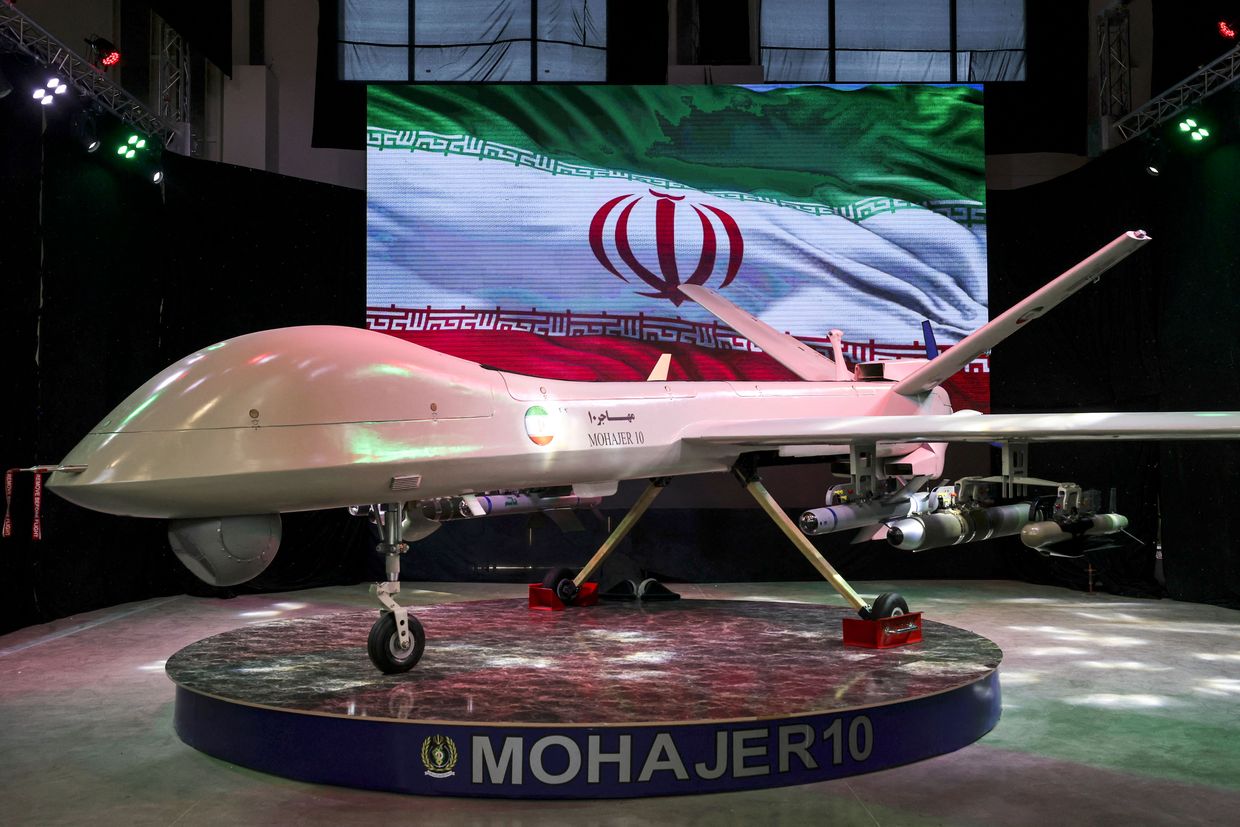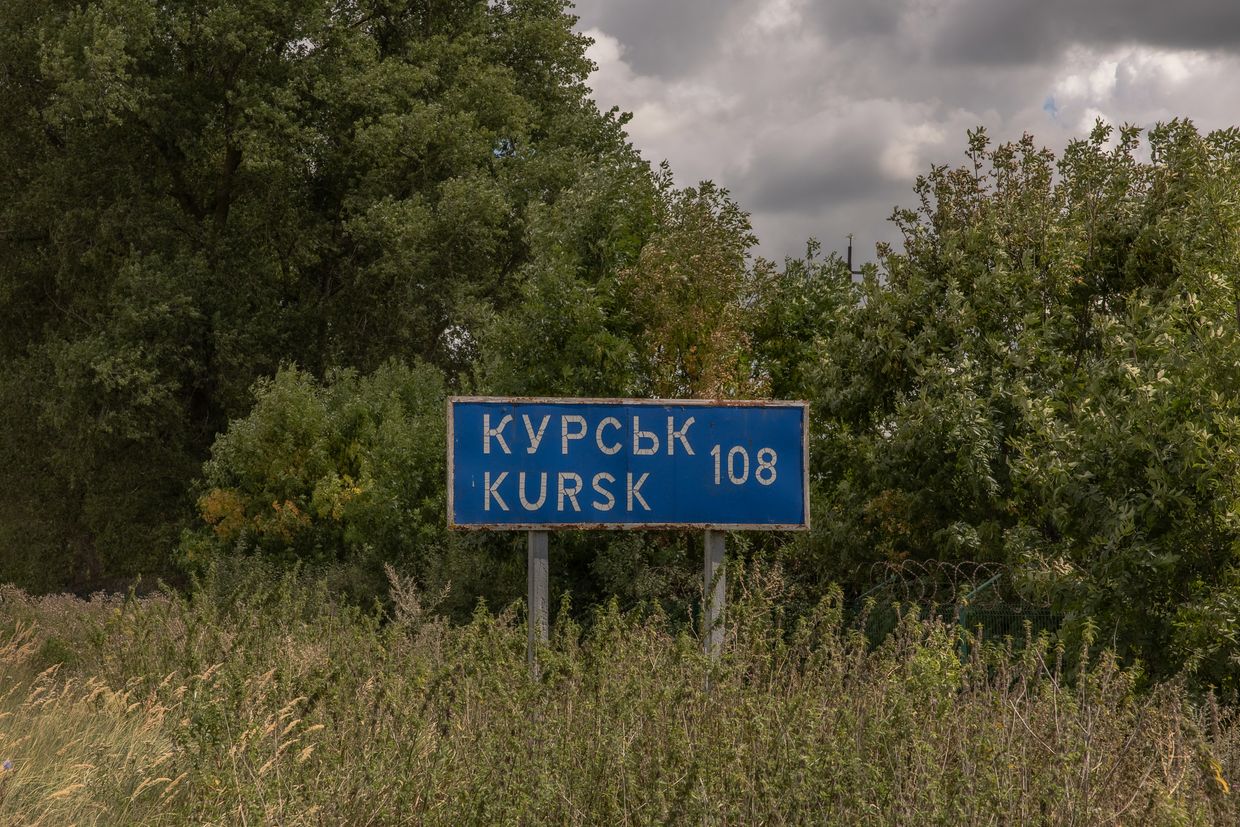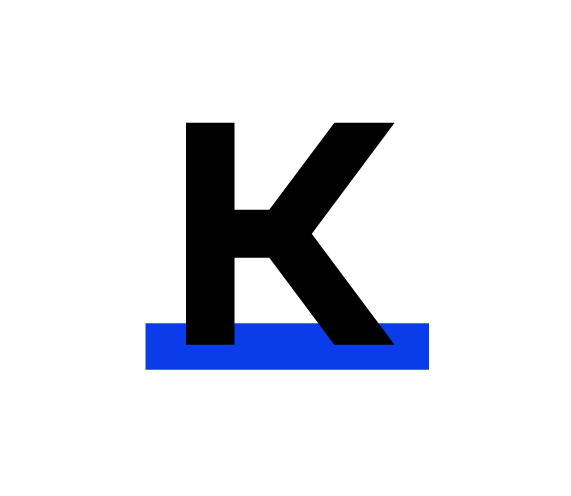Key developments on Aug. 13:
- Ukraine controls 74 settlements in Russia's Kursk Oblast, Zelensky says
- Ukraine not allowed to use British Storm Shadow as part of Kursk Oblast incursion, Telegraph reports
- Kursk incursion has not yet influenced situation near Toretsk, military says
- Ukraine's incursion brings Russia closer to new mobilization, Bloomberg says
- Latvia transfers another 500 drones to Ukraine
The Ukrainian military currently controls 74 settlements in Russia's Kursk Oblast, President Volodymyr Zelensky said on Aug. 13.
Ukraine's cross-border incursion into neighboring Kursk Oblast began on Aug. 6, and by Aug. 12, Ukraine said it had control over 1,000 square kilometers of Russian territory.
Kursk Oblast covers just under 30,000 square kilometers, which is similar to the size of the U.S. state of Maryland or the German state of Brandenburg.
Russia's regional authorities claimed on Aug. 12 that Ukraine is in control of 28 settlements in Kursk Oblast and alleged that the incursion was up to 12 kilometers deep along a 40-kilometer front.
Commander-in-Chief Oleksandr Syrskyi said on Aug. 13 that Ukraine's Armed Forces advanced 3 kilometers and took control over another 40 square kilometers of Russian territory.
Zelensky said he is "constantly in touch" with Syrskyi about the situation in Kursk.
"Despite the difficult, intense battles, the advance of our forces in Kursk Oblast continues," Zelensky said. "Humanitarian solutions for these territories" are being established, Zelensky added.
Ukraine's Foreign Ministry spokesperson Heorhii Tykhyi told reporters on Aug. 13 that "unlike Russia, Ukraine does not seek to seize territory" but wants to "protect the lives of our people."
Ukraine's incursion into Russia's Kursk Oblast aims to prevent Moscow from sending additional reinforcements to the front in Donbas and stop Russian cross-border strikes, Tykhyi said.
"Since the beginning of this summer, Ukraine's Sumy Oblast has been targeted with over 2,000 strikes using multiple launch rocket systems, mortars, drones, 255 guided bombs, and more than a hundred missiles, launched from Kursk Oblast," Tykhyi said.
"Unfortunately, Ukraine does not have sufficient capabilities to carry out long-range strikes with the weapons it has to defend itself against this terror."
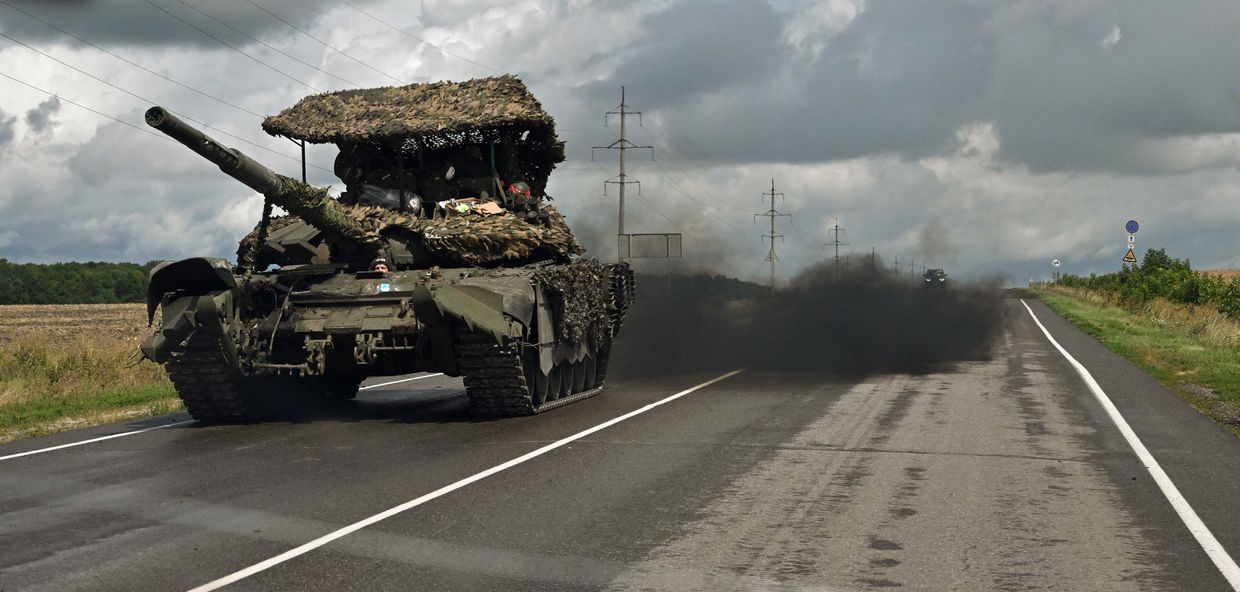
Ukraine not allowed to use British Storm Shadow as part of Kursk Oblast incursion, Telegraph reports
The U.K. government did not give Ukraine permission to use British Storm Shadow long-range missiles in Kyiv's incursion into Russia's Kursk Oblast, The Telegraph reported on Aug. 13, citing an undisclosed British government source.
"There has been no change," the source reportedly told The Telegraph.
Despite earlier declarations by former and current British officials, London has not yet allowed Ukraine to use its missiles with a range of up to 250 kilometers (150 miles) to strike targets inside Russia. Kyiv has reportedly used Storm Shadow missiles against Russian positions in occupied Ukrainian territories, such as Crimea.
The news comes shortly after President Volodymyr Zelensky said on Aug. 12 that he had tasked officials and diplomats to present a list of necessary actions to obtain permission from its partners to use long-range weapons to protect Ukraine's territory.
Such permission could play a key role in the unprecedented incursion of Ukrainian troops launched into Kursk Oblast on Aug. 6. Kyiv has refrained from providing details of the operation, such as a possible use of Western arms in the operation.
A Foreign Ministry spokesperson said on Aug 13 at a press conference attended by a Kyiv Independent reporter that the incursion itself would be "less necessary" if Kyiv were allowed to "fully utilize (its) long-range capabilities" against Russia.
"If Ukraine could strike the enemy troops on their territory, from where they threaten Ukraine, then Ukraine would be in a much better position to protect itself," spokesperson Heorhii Tykhyi said.
"In particular, it would be less necessary to use the Ukrainian defense forces outside of the Ukrainian borders, including Kursk Oblast."
Russian media claimed that Ukraine has deployed U.S.-supplied Bradley and German-supplied Marder armored vehicles. The Kyiv Independent could not verify the claims.
According to the Bundestag's Defense Committee Chair Marcus Faber, it would be "completely legitimate" if Ukraine deployed German-supplied hardware in Kursk Oblast, such as Leopard 2 tanks.
In a statement issued to Politico on Aug. 9, Germany's Foreign Ministry said that "Ukraine has the right to self-defense enshrined in international law," adding that the principle of self-defense "is not limited to its own territory."
The U.S. said it has not changed its stance regarding Ukraine's use of American arms but added that the incursion into Kursk Oblast is "consistent with (their) policy."
Responding to a question on the incursion and whether Ukraine can use U.S.-supplied weapons, Pentagon spokesperson Sabrina Singh replied that the U.S. has "supported Ukraine from the beginning to defend themselves against attacks that are coming across the border."
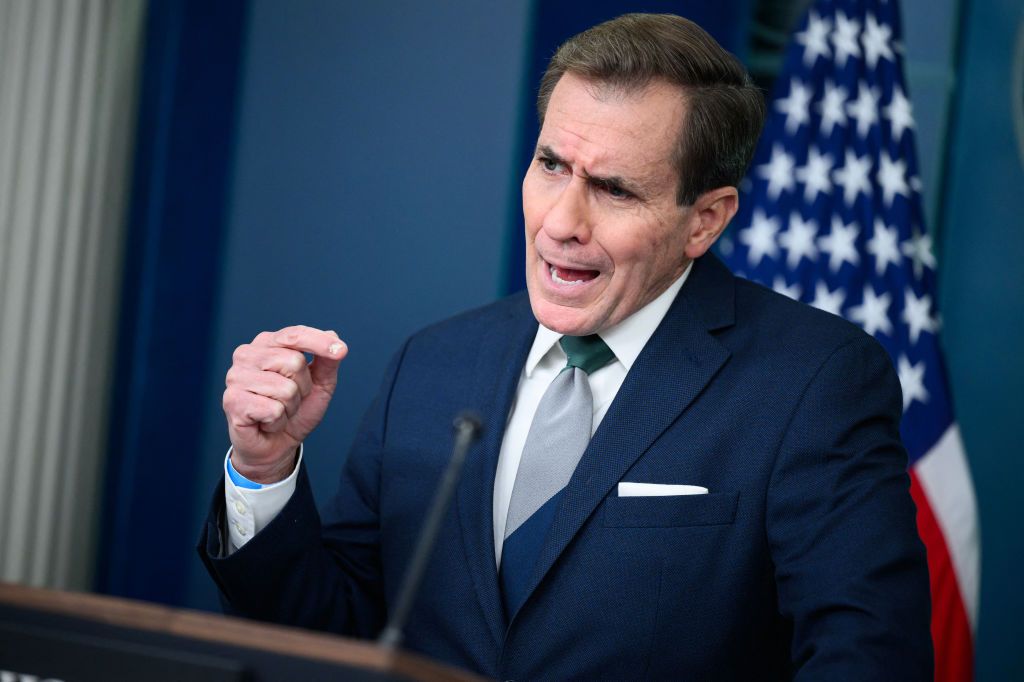
Kursk incursion has not yet influenced situation near Toretsk, military says
Ukraine's operation in Russia's Kursk Oblast is yet to have an impact on the fighting in the direction of Toretsk in Donetsk Oblast, a spokesperson of the 32nd Separate Mechanized Brigade said on air on Aug. 13.
Russian forces continue to attack Toretsk, and battles have now reached the outskirts of the town, military spokesperson Oleksandr Bordiian told Radio Free Europe/Radio Liberty. Russia continues to send sabotage groups and increased the frequency of airstrikes, he added.
The statement comes the same day as Ukraine's Foreign Ministry said the cross-border operation in Kursk Oblast aims to divert Russian troops from Donetsk Oblast, among other goals.
"As for the ground attacks, yes, the intensity has dropped a bit... They did not decrease significantly, but they (Russian forces) are trying to compensate for this by increased strikes with guided aerial bombs," Bordiian said.
The spokesperson also reported battles in the immediate proximity of Toretsk, specifically in the urban area of the Pivnichne-Zalizne agglomeration. Russia deploys small sabotage groups to infiltrate the Ukrainian army's rear, he said.
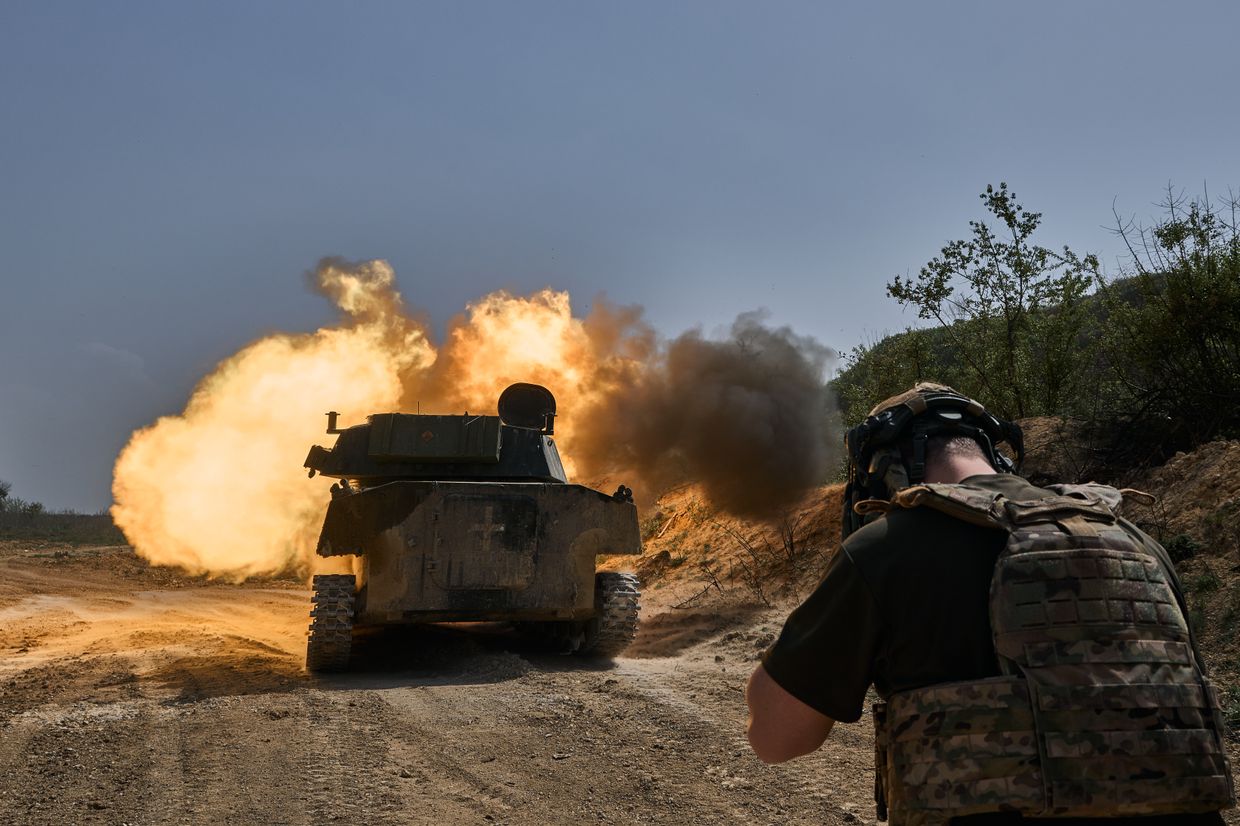
Ukraine's incursion brings Russia closer to new mobilization, Bloomberg says
The Russian army is not receiving enough new soldiers to keep up with losses at the front, which are the heaviest since the start of the full-scale invasion in 2022, Bloomberg reported on Aug. 13, citing undisclosed sources "close to the Kremlin and Russian Defense Ministry."
The need to replenish the military reserve became more acute amid Ukraine's incursion into Russia, and the situation may force Russia to consider a new mobilization, Bloomberg reported, citing two sources who spoke on the condition of anonymity.
Officials may present it as a rotation to give the military on the front line a rest, and the draft could be announced by the end of this year, according to the sources.
Regional officials are currently unable to meet more than a third of their conscription quotas on average, a person familiar with the situation told the media outlet.
Moscow's inability to quickly repel the Ukrainian cross-border attack and regain control of its border revealed a lack of available reserves, part of broader manpower strains felt across the military.
The deepening shortage of soldiers for the war in Ukraine is prompting Russia to raise conscripts' pay.
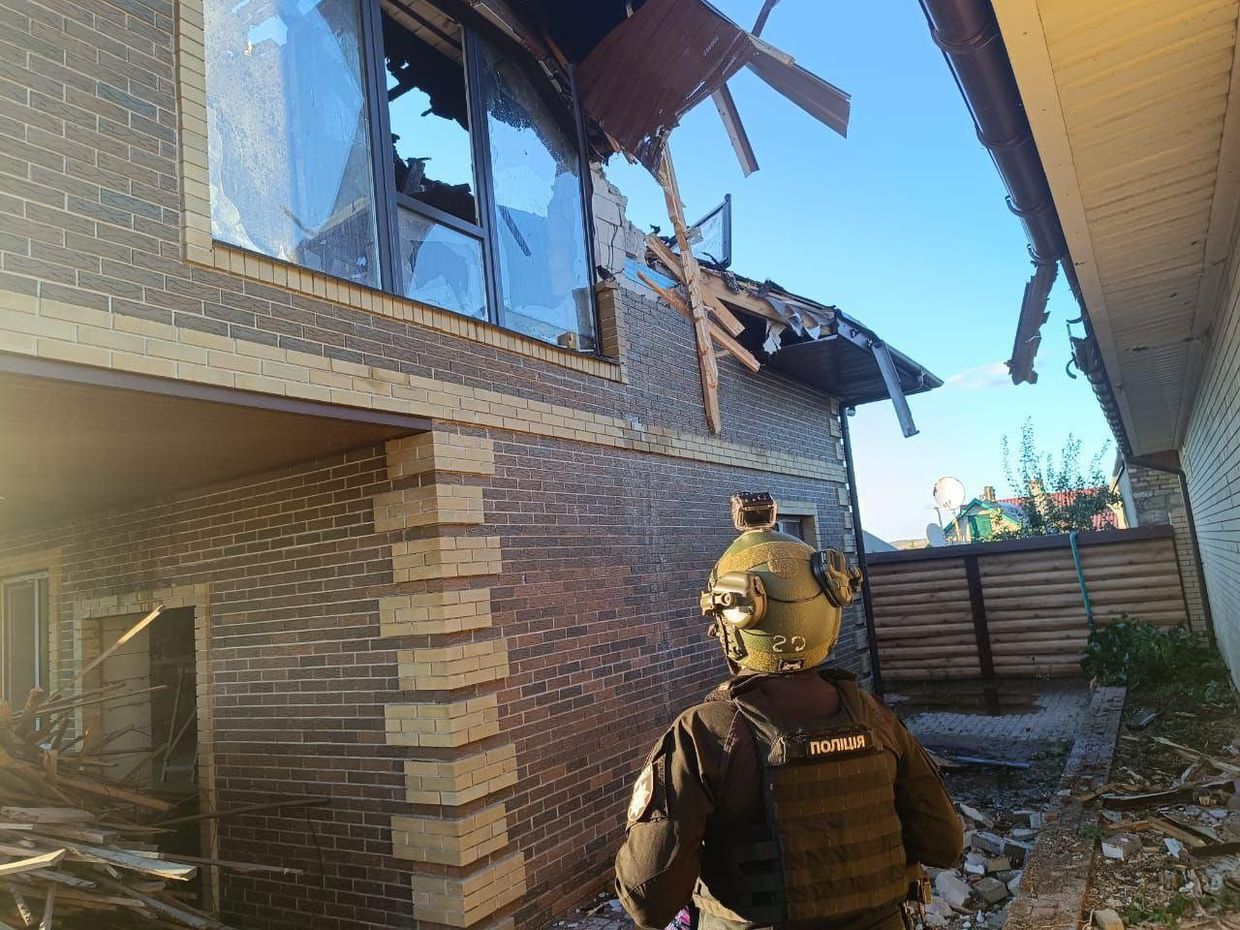
Latvia transfers another 500 drones to Ukraine
Latvia is transferring another 500 Latvian-made combat drones to Ukraine, the country's Defense Minister Andris Spruds said on Aug. 13.
The drones, provided in the framework of the international drone coalition, will "provide support for Ukrainians in various combat missions," the minister said in his post on X.
In early July, the defense ministry announced that Riga will send more than 2,500 combat drones of different types, worth 4 million euros ($4.3 million), to Ukraine over the month.
Spruds announced back in May that the Latvian government would invest around 20 million euros ($22 million) in the drone coalition this year, and a similar sum to the development of Latvia's own drone capabilities.
Along with the U.K., Latvia is the leader of the drone coalition, an allied initiative established to supply Ukrainian forces with this crucial capability.
The coalition was established in January to bolster Ukraine's arsenal of unmanned aerial vehicles (UAVs). Seven countries, in addition to the founding states, have joined the alliance, including Germany, Canada, the Netherlands, Lithuania, Sweden, Estonia, and Denmark.
